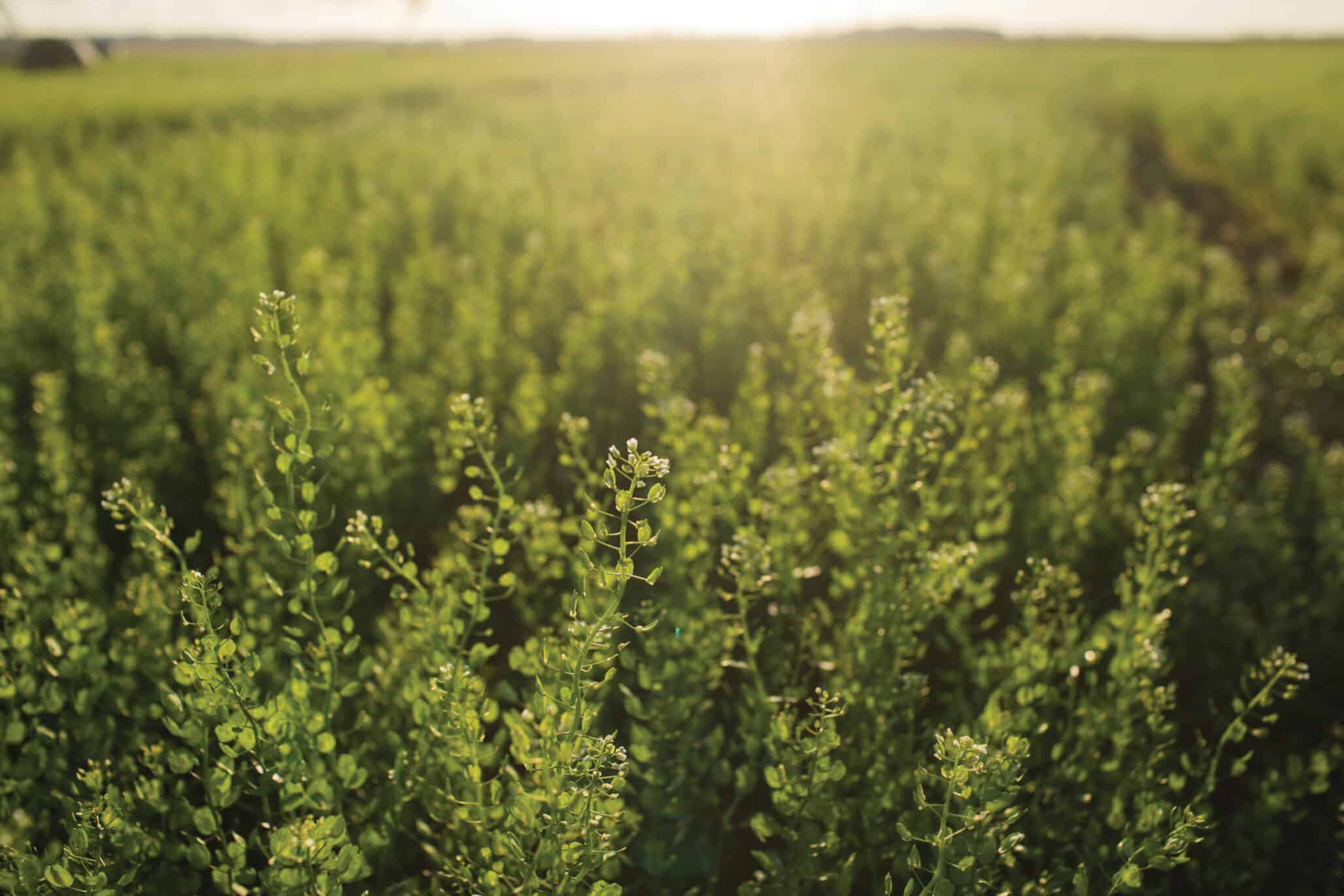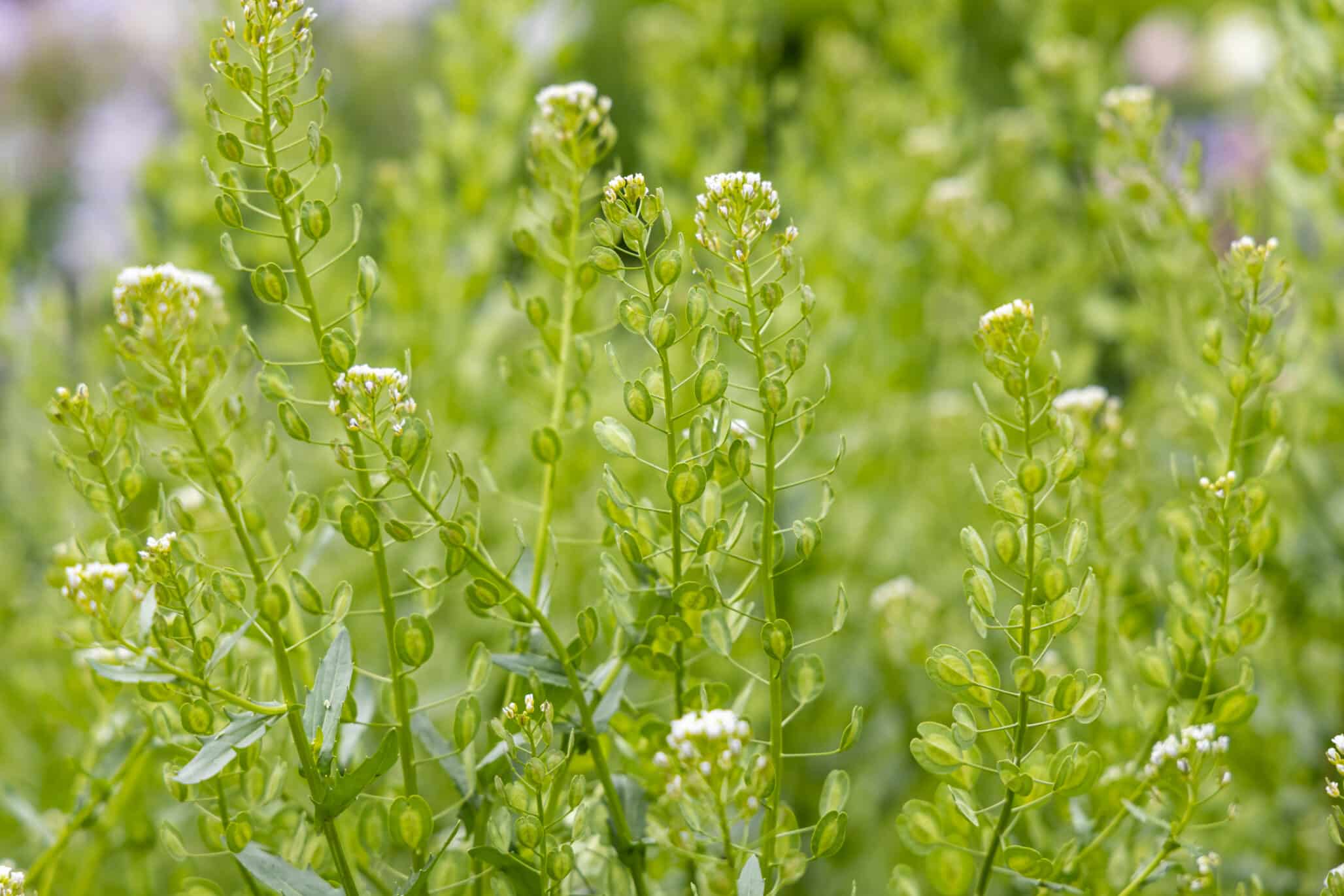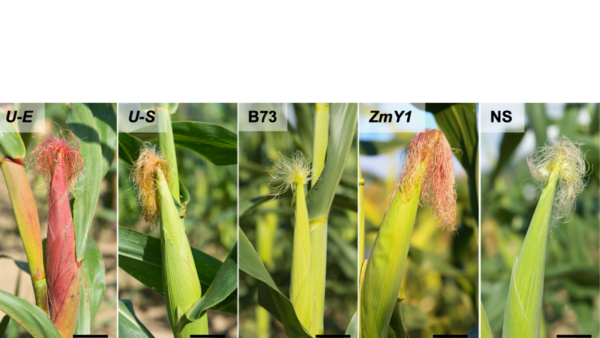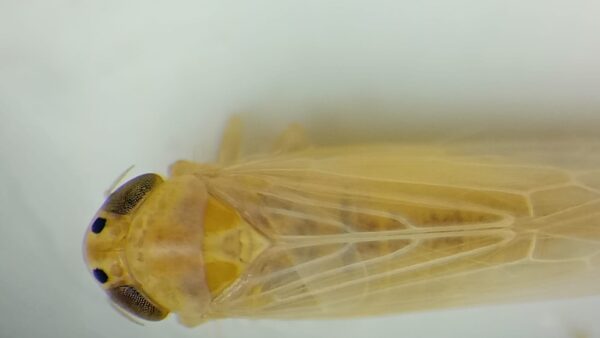The Western Illinois University School of Agriculture announced today that Agriculture Professor Win Phippen is the recipient of a $10 million federal grant to investigate the use of the alternative crop, Pennycress, as a new cash cover crop in the Midwest.
The U.S. Department of Agriculture (USDA) National Institute of Food and Agriculture (NIFA) grant will allow Phippen to further refine Pennycress as a new winter-annual cash cover crop for use by the biofuel industry. Researchers from Illinois State University, the Ohio State University, the University of Wisconsin-Platteville and the University of Minnesota will join Phippen’s team to refine this high-yield oilseed crop. Phippen, who has been with the School of Agriculture and the director of the School’s Alternative Crops Program since 2000, has been growing Pennycress, and investigating its uses as a biofuel alternative, for 10 years.
“Pennycress is unique among cover crops as it can generate income, which incentivizes farmer participation. Integration of Pennycress into existing corn-soybean rotations extends the growing season on established cropland and avoids food crop displacement, all while yielding up to two billion gallons of oil annually,” Phippen explains.
The goal is to produce 50 billion gallons of biofuel in the next 25 years. The integrated Pennycress crop program will work toward commercializing the crop within five years, according to Phippen. Research will focus on improving Pennycress genetics (germplasm) for plant breeding and preservation, agronomic management, ecosystems and supply chain management for post-harvest seed control.
“The integration of Pennycress as a cash cover crop will positively impact producers’ profits, decrease soil erosion and nutrient runoff, which protects water systems, support pollinating species (bees and other pollinators), suppress weeds, diversify the nation’s energy sources and contribute to rural economies,” Phippen says. “We’re very excited to further refine this powerhouse crop as an alternative for our Midwest farmers. I am most appreciative of the U.S. Department of Agriculture’s faith in my research, and I look forward to leading a team of researchers with a solid background in alternative crop research.”
Phippen’s integrated program optimizes off-season Pennycress oilseed production by overcoming production and supply chain bottlenecks, with the goal of commercially launching Pennycress as a cash cover crop in 2021. CoverCress, Inc., of St. Louis, MO, is working closely with Phippen and his team for some of the breeding and post-production side of the research. Trial Pennycress planting in Illinois, Ohio, Wisconsin and Minnesota will begin this month, with the first harvest anticipated in May 2020. The alternative crop is planted immediately following a corn harvest. After harvest, Pennycress storage will be tested, along with the quantity and quality of oil extracted, and the shelf life of Pennycress oil. The oil and meal will be further studied to determine uses for fuel, feed and food applications.
“This grant is a phenomenal coup for Dr. Phippen and the School of Agriculture. We were lucky to hire Win 19 years ago to lead an alternative crops program, which at the time was still relatively new,” says School of Agriculture Director Andy Baker. “His work and dedication to alternative crops is most deserving of this grant. Not only does this grant and research put our School and his program further on the map, it provides learning opportunities for our students that they will not find anywhere else.”
USDA Deputy Under Secretary Scott Hutchins said the $77.8 million in NIFA research grants, which have been awarded to eight U.S. universities, are aimed at integrating sustainable agricultural approaches covering the entire food production system.
“Investing in high-value research that promotes sustainably intensified agricultural practices, while addressing climate adaptation and limited resources, ensures long-term agricultural productivity and profitability and provides unprecedented opportunities for American farmers and producers,” says Hutchins, who leads USDA’s Research, Education and Economics (REE) mission area. “USDA continues to support our nation’s farmers through investments that help strengthen our rural communities.”
This research investment is part of a new program within NIFA’s Agriculture and Food Research Initiative’s (AFRI) Sustainable Agricultural Systems program, the nation’s leading and largest competitive grants program for agricultural sciences.
Other researchers part of Phippen’s team include John Sedbrook, Bill Perry, Rebekka Darner, William Hunter, Nicholas Heller and Rob Rhykerd (Illinois State University); Jim Anderson, Ratan Chopra, Katherine Frels, M. David Marks and M. Scott Wells (University of Minnesota); Alexander Lindsey (The Ohio State University); Pamela Tas (University of Wisconsin-Platteville); and Cristine Handel, CoverCress, Inc. Project advisory board members include Steve Csonka, executive director, CAAFI, Greg Haer, VP Sales and Marketing, Renewable Energy Group, Jerry Steiner, CEO, CoverCress, Inc. Anne Kinzel of I-Prefer is the project manager.












